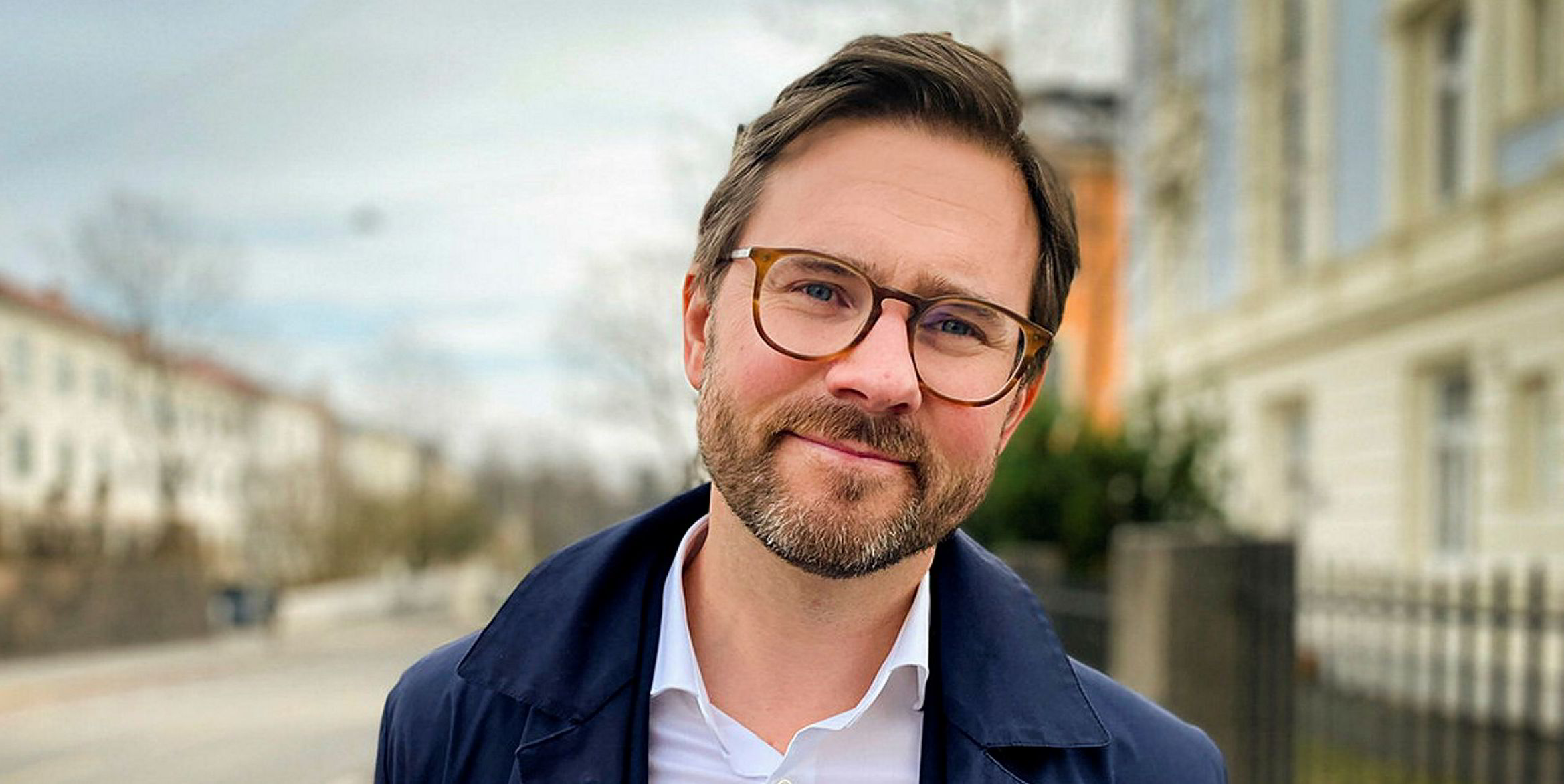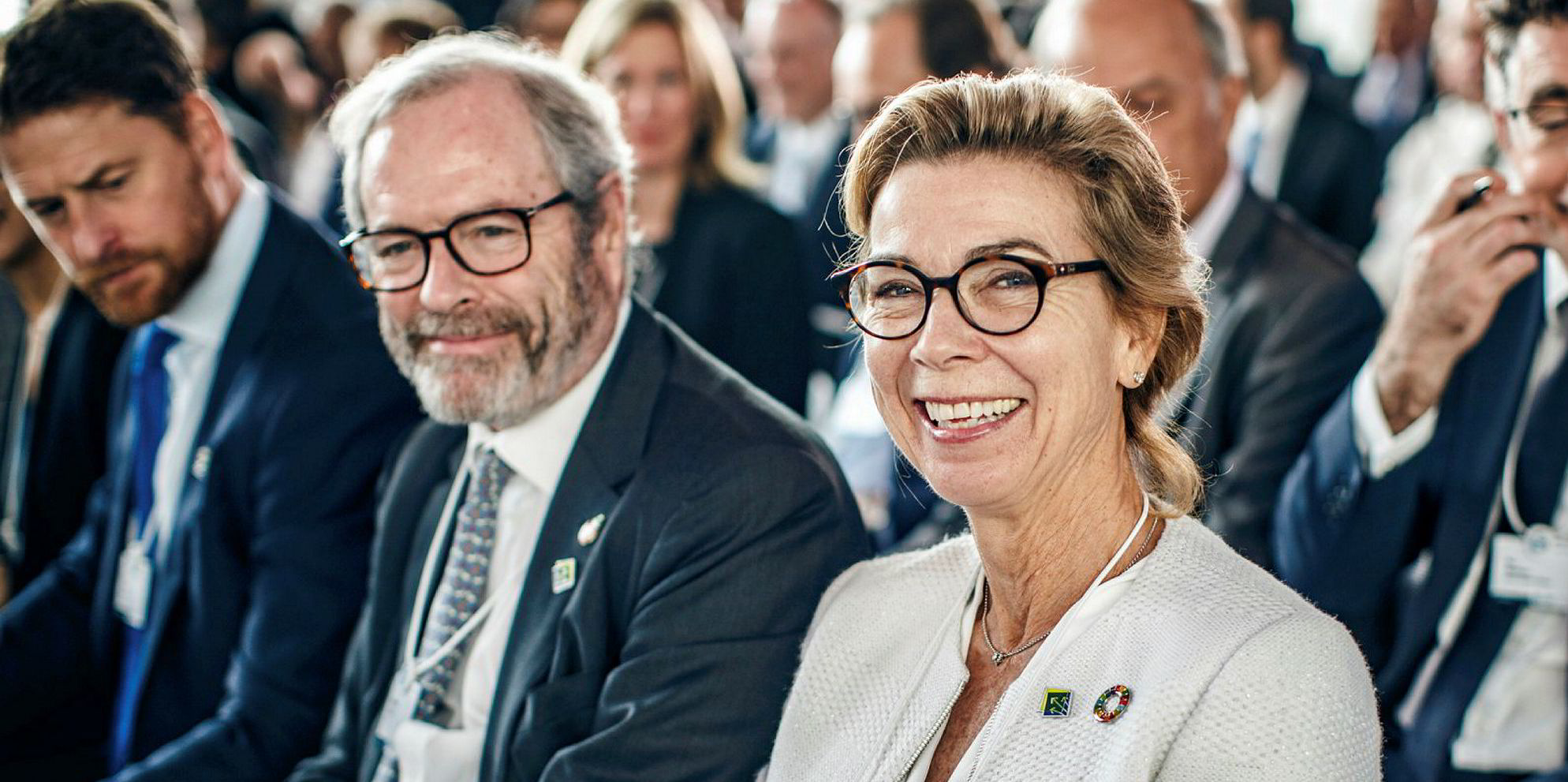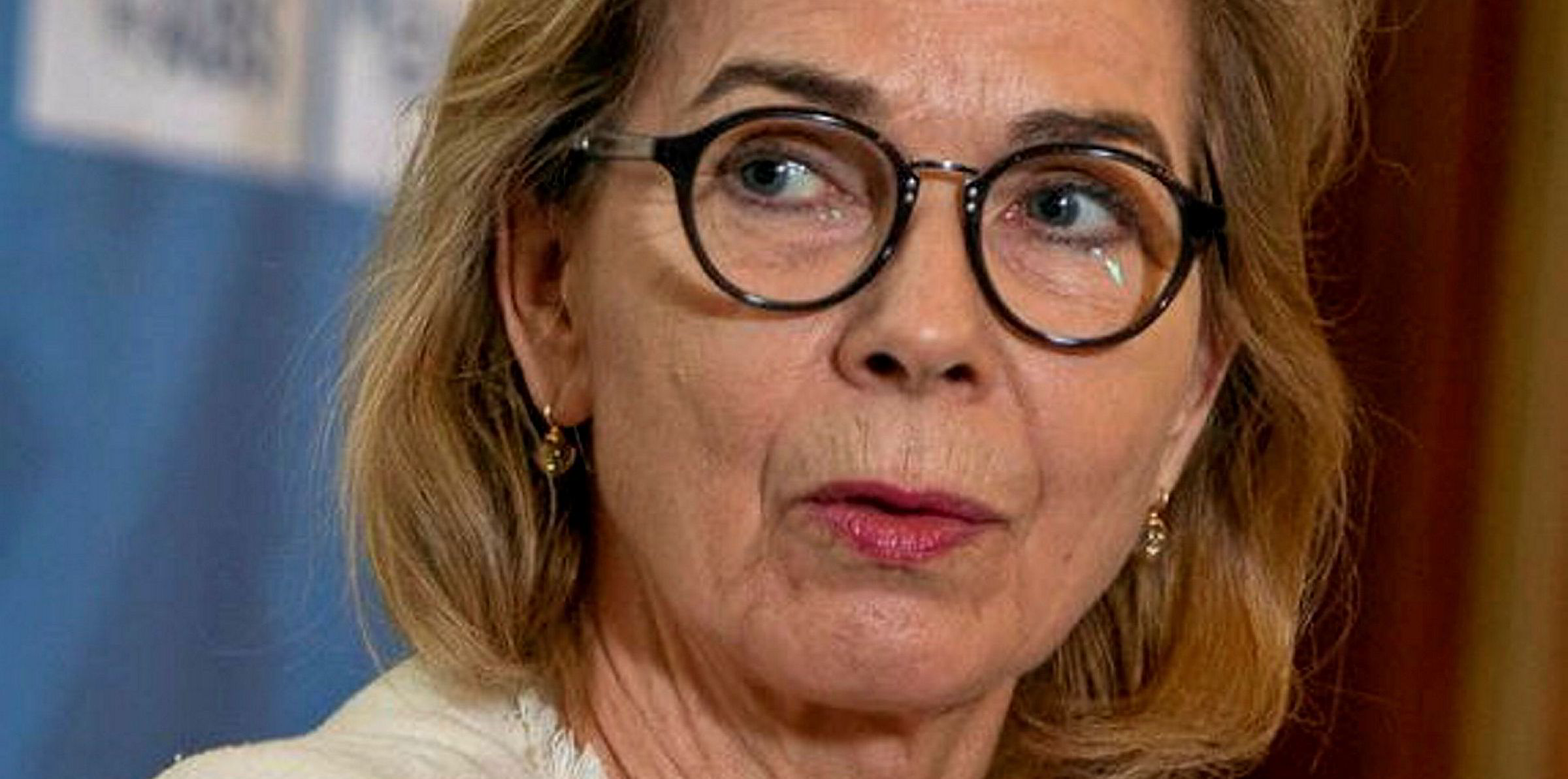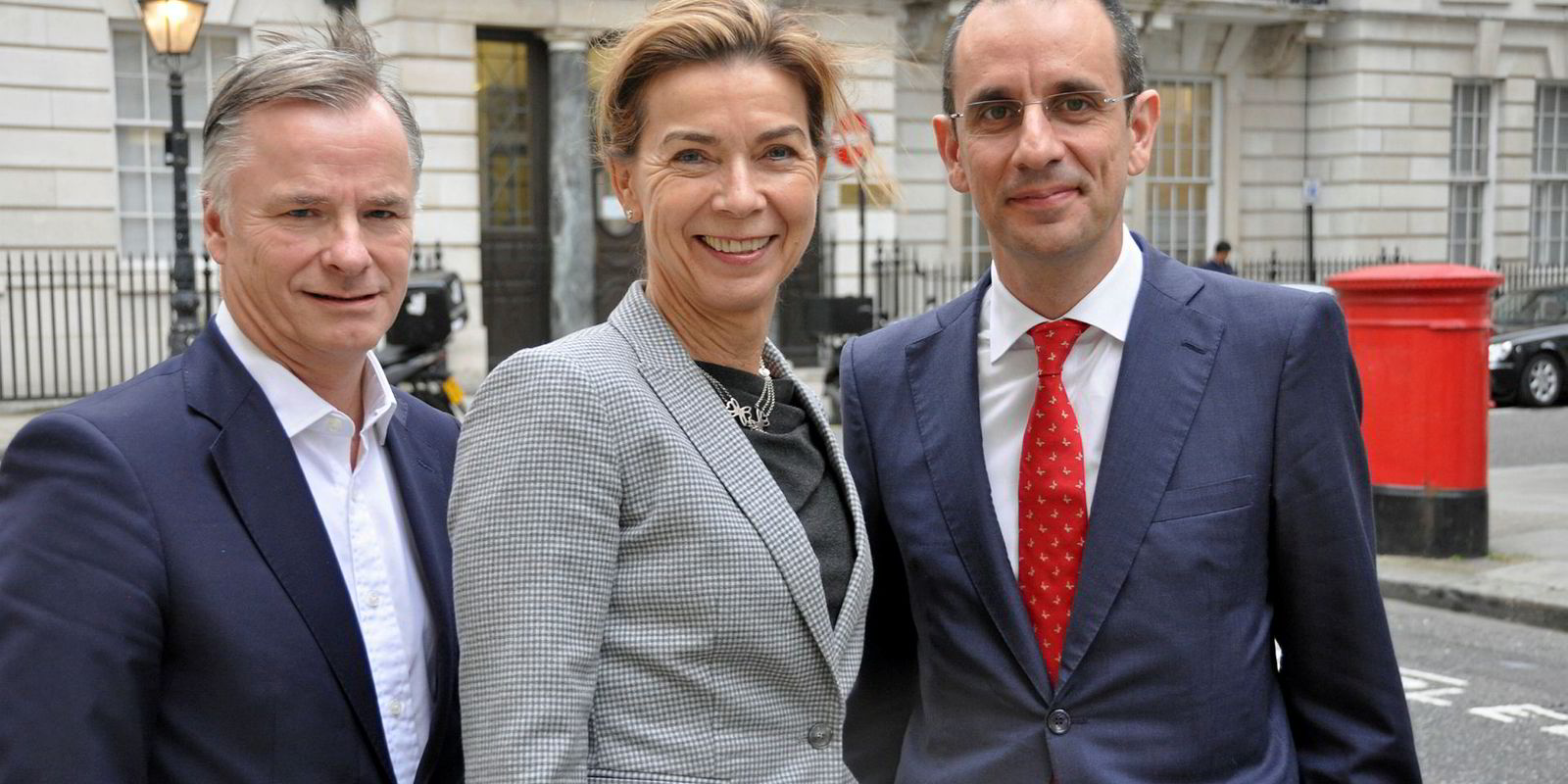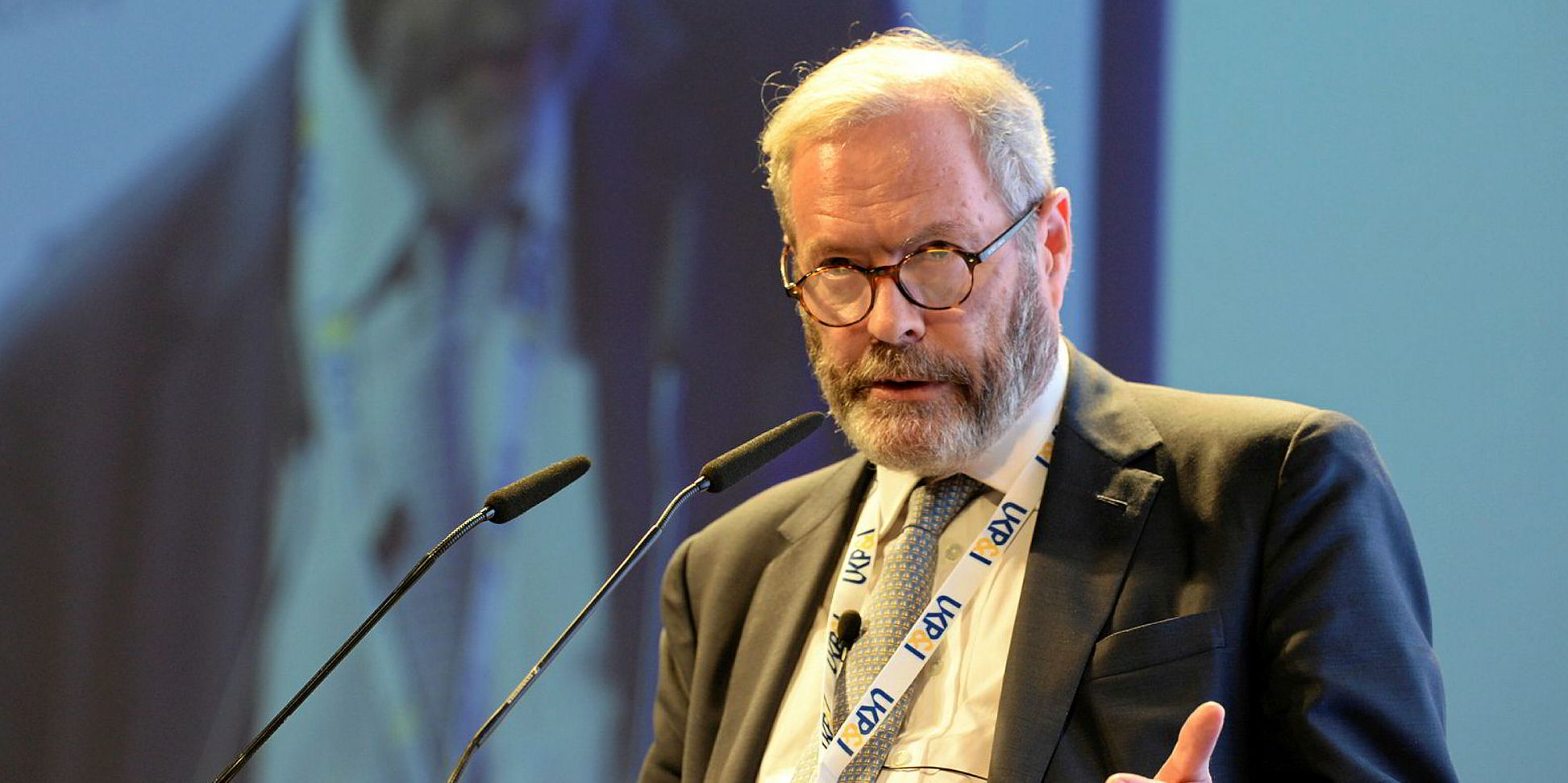The new head of DNB’s shipping and offshore says the Norwegian bank is ready to work with clients as they battle to overcome the “extreme situation” created by the global coronavirus pandemic and the oil price collapse.
Jan Ole Huseby, who takes over this week from high-profile figure Kristin Holth, said offshore faces a “very severe impact” while most shipping sectors will see demand contracting sharply.
“For our clients, this is an extreme situation today,” Huseby told TradeWinds. “The best thing we can do is to be close to them and be ready to work with them when needs occur.”
Speaking alongside Holth, he added: “We will of course work to the best of our ability, but in this constantly changing situation it is harder than other crises."
Huseby, 42, is succeeding Holth as head of DNB’s Ocean Industries division, which she has led since its creation two years ago to coordinate the bank’s shipping, offshore, oilfield services and seafood activities.
Most shipping markets will be hard hit by the crisis, the banker admitted. “Some sectors, such as tankers, are doing well, but others like the car market are facing longer-term issues. But this crisis is bearing down on most shipping segments with demand weakening.”
But for the offshore vessel and other oil markets, which had not yet recovered from the debt crisis triggered by the last oil price collapse, the impact will be extreme, Huseby said.
“This is an industry facing a very severe impact. And yes, there will be more substantial restructuring along the way, in all likelihood. Already we see implications out into the middle-term in 2021.”
Huseby has worked for DNB for more than 10 years in shipping and offshore, investor relations and most recently heading its ocean services unit, which comprises offshore and oil services activities. Christos Tsakonas remains DNB’s global head of shipping, reporting to Huseby.
Holth described the current crisis as unprecedented for shipping due to the type of dislocation it has caused.
“This is an extremely challenging time. For shipping companies, they are facing unprecedented challenges because of the nature of the crisis, not just the disappearing markets due to lower demands, but new challenges such as not being able to transfer crews because of the quarantine restrictions.
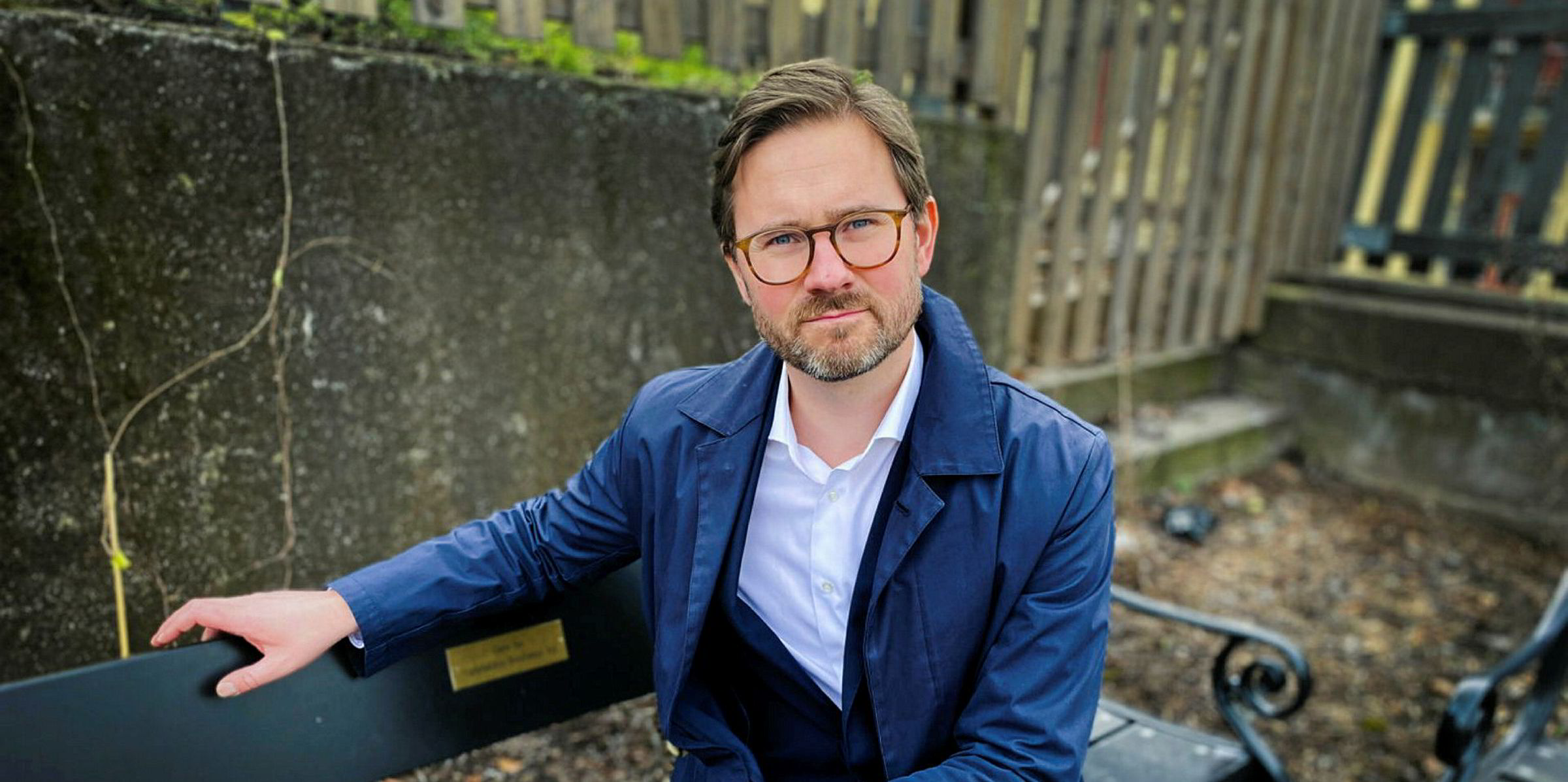
“That presents particular challenges in addition to any financial effects,” she said.
The charismatic banker has spent her career at DNB, which she joined as a trainee in 1984. She announced last month she was stepping down for a fresh chapter to her career in the corporate sector. She is due to be appointed as a director of Maersk Drilling later this week.
“I have very mixed feelings about leaving right now,” she said. “This was all planned before today’s crisis, however, so seeing the challenges the team face was not what I had in mind for them and gives a rough start for my successor.”
But she added: “This is also a good opportunity for Jan Ole.
“He has a fresh start, which gives him the chance to bring his energy and vision. During the tough times, you need a particular type of management – which I enjoyed – which enables you to set the right direction for the longer term.
“I’m proud of having built and led this team, and I know this will bring the best out of them.”
Huseby paid tribute to the way Holth had developed the business, even during difficult parts of the cycle.
“I am extremely humbled to be taking over from Kristin, who has been instrumental in putting DNB in its leadership position with the creation of the Ocean Industries division,” he said.
“It is obviously a huge task to fill her shoes. My main task is to enhance our position.
“Yes we have reduced our exposure over the past few years, but we have kept our position strong offering both core lending and capital markets services.”
DNB remains strong financially, as do most western banks having been forced to rebuild their balance sheets after the 2008 global financial crisis.
“DNB is certainly in a strong position. But this is problem not caused by weak banks. It is caused by a collapse in demand and the seizing up of supply chains. The capital markets are very challenging,” Huseby said.
Holth has taken a leadership role in highlighting the challenges shipping faces in meeting environmental, social and governance (ESG) standards.
She helped draw up the Poseidon Principles for banks to align clients’ fleets with IMO greenhouse gas reduction targets. Last week, Tsakonas was appointed to the initiative’s steering committee.
Huseby said he was committed to continuing to lead on the issue. “I want to maintain the focus of DNB on looking to the future, supporting our clients and such shifts as the energy transition.”
The crisis could provide an opportunity for accelerating ESG work “since it gives people a chance to secure a new vision of the future, and we are here to support that”, he said.
“However, right now the intensive focus is on cash and the struggle to remain solvent. For clients it is clearly vitally important to remain focused on managing their business today.”
